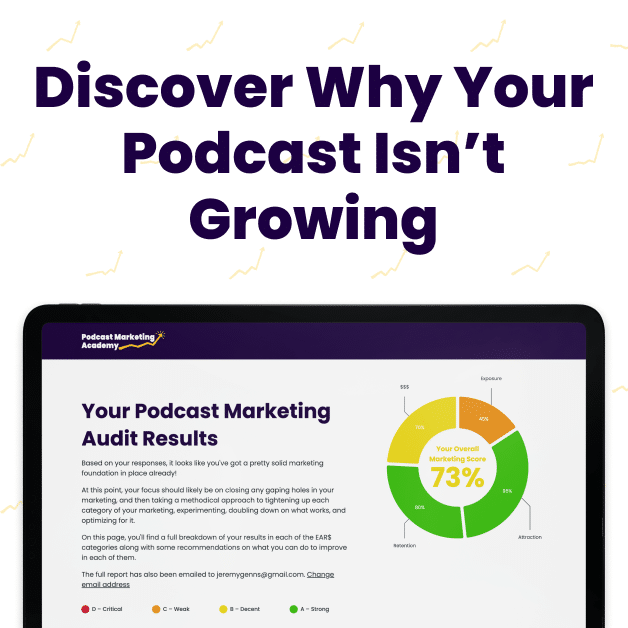In our data-driven world, it’s tempting to rely on easily measurable metrics as the ultimate judgment of our podcasts’ success, failure, and impact.
Downloads, subscriptions, ratings, and reviews are presented front and center in the dashboards of every app and tool we use. They’re easily measurable, trackable, and give us the sense of being able to definitively determine the objective value of what we’re creating.
It only makes sense that we would accept these metrics as the primary feedback worth measuring ourselves and internalize what they say about us and our shows.
But what if these metrics weren’t the only way to measure the success of our shows?
What if they weren’t the best measures of success either, but were simply symptoms of doing other things well?
If that were the case, wouldn’t it make sense to measure and optimize for those other factors instead?
Let me show you what I mean.
A few years ago, one of my clients, Ryan, read an email that he had received from one of his listeners at the end of an episode.
The long-time listener shared how he had been struggling with drug addiction and a recent episode of Ryan’s show had prompted him to get the help he needed in order to be the best father, husband, and business owner that he could be.
It’s worth mentioning that Ryan’s show wasn’t about self-help or personal development but helping video business owners run more successful businesses.
What’s more, at the time, the show didn’t even have many downloads.
Measuring by downloads alone, it would tempting to label the show a disappointment.
Despite the small audience, however, Ryan had a high rate of listener engagement, and while the example above might have been the most significant listener success story, it was far from the only one.
This story has always stuck with me.
As podcasters, we have the potential to create an incredibly intimate connection with our listeners. And like Ryan, we’re often able to impact them in deep and meaningful ways that extend well beyond the boundaries of our specific subject matter.
To me, this potential for connection and impact is where the magic of podcasting lies.
But here’s the thing: None of that magic is captured by the number of downloads, subscribers, ratings, or reviews.
Especially when we’re first starting out, it’s easy to be discouraged by low download numbers. It doesn’t take a lot of listeners, however, to have meaningful interactions with the listeners you have.
What’s more, as per the old saying, what gets measured gets managed.
In other words, when you focus on measuring the quality of the engagements you have with your listeners, you–consciously or unconsciously–begin to optimize for them.
When you optimize for meaningful engagement with the listeners you already have, your approach to your show becomes more directly focused on serving them. Provided your existing audience is filled with the type of people you want to attract more of, the better you serve them the better the show becomes.
Create a show that really means something to even a small number of listeners, and over time, those listeners will bring in more listeners.
Said differently, aim to matter more to your listeners (no matter how many or how few you have) and the traditional metrics will take care of themselves.
The first step, however, is recalibrating what you’re measuring in the first place.





